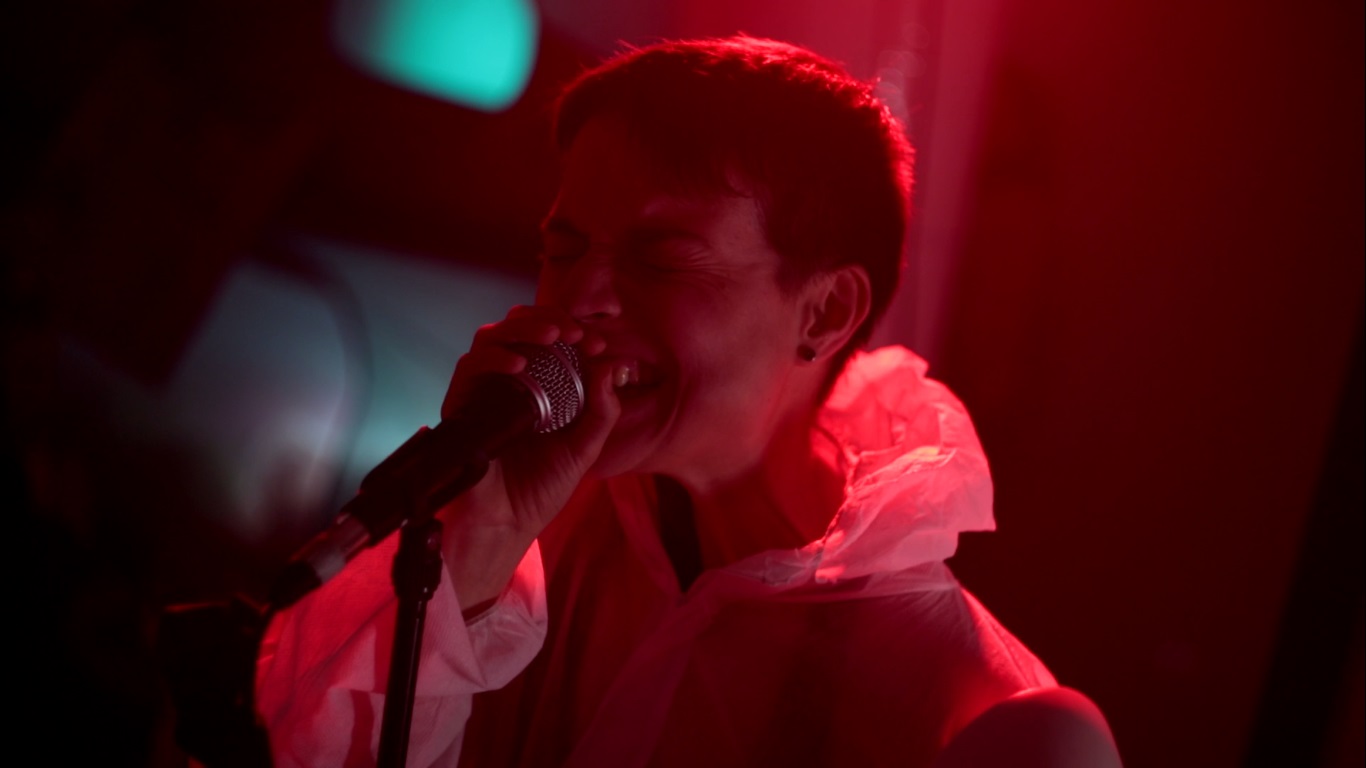Seit 2006 finden in der Lettrétage ca. 120 öffentliche Literaturveranstaltungen jährlich statt – Lesungen, Workshops, Diskussionsrunden, literarische Performances und Formate dazwischen. Bekannte und unbekannte Autor*innen und Künstler*innen verschiedener Sprachen und Nationalitäten sind hier schon aufgetreten.
Seit 2013 liegt der Programmfokus u.a. auf neuen Wegen der literarischen Präsentation und Live-Produktion: Dazu zählen u.a. die internationalen bzw. transnationalen Literaturfestivals „Soundout!“, „¿Comment!“, „Berlinisi“ und „Syn_Energy“, aber auch das viel beachtete Netzwerkprojekt „CROWD“ und multimediale Projekte wie die Reihe „CON_TEXT“ oder das „Poetry Audio Lab“. Eine vollständige Liste der Lettrétage-Projekte finden Sie hier.
Als Ankerinstitution für die freie Literaturszene Berlins stellt die Lettrétage außerdem ihre Räume für Literaturveranstaltungen aller Art zur Verfügung. Zahlreiche freie Veranstalter*innen nutzen unsere Infrastruktur regelmäßig – für Literatur-Workshops, Lesereihen in verschiedenen Sprachen und Buchpräsentationen. Mehr zu den Möglichkeiten der kostenlosen Raumnutzung erfahren Sie hier.
Auf dieser Seite präsentieren wir einen nicht vollständigen Einblick in unser vergangenes Programm.
Veranstaltungen
Termin Informationen:
-
Fr07Jul202320:00Eintritt: frei
Love&Democracy: A sound installation in four parts
PART 1: The Neighborhood

(c) Paul Brody Paul Brody’s sound installation lands somewhere between a recorded concert and a poetry reading, what he calls “musical translations” of poems and short prose pieces. Underpinning the words are compositions based on samples from symphonies and instruments taped live in a studio, creating a series of playfully eclectic mini-musical-poetic adventures.
While one poet might inspire a funky groove created from recordings of twisting tin cans, footsteps, and a drumbeat ripped from an old Deutsche Gramphon LP, another writer’s voice might conjure an electro-symphonic collage. The foundation is the writers reading their works, but Brody at times cuts out consonants, stretches vowels, and creates rhythmic patterns from fricatives to paint a heretofore unexplored musical landscape.
The idea of translating a poem from its sonic qualities isn’t new. Two poets in this installation, Uljana Wolf and Christian Hawley, have worked with homophonic translation—renderings of poems based on their sonic qualities rather than the meaning of the words.
The show features stories dedicated to place, to neighborhood, in the first leg of Brody’s four-part cycle LOVE&DEMOCRACY, notions that are inextricably intertwined. Without a love of place and neighbors, democracy is impossible. And without treating each other fairly—democratically—there can be no real love. As the German jurist and politician Lore Maria Peschel-Gutzei says, “Democracy is the most difficult form of government. One must care enough to struggle and respect and negotiate.” The same could be said for love.
The installation includes works from Uljana Wolf, Christian Hawkey, Gregor Dotzauer, Tom Drury, Angélica Freitas, Gregor Hens, Ivana Sajko, Tom Bresemann, Donna Stonecipher, and Michael Krüger as well as readings from Marina Frenk and Kiki Sauer.
More information and audio samples on Paul Brody's website.
 (c) Dirk Hasskarl, http://www.hasskarl.de/
(c) Dirk Hasskarl, http://www.hasskarl.de/
Paul Brody was born in the USA, California, and received his training as a musician at the New England Conservatory of Music in Boston. Brody works regularly as a sound artist, composer and trumpeter at the Théâtre de Vidy in Lausanne, the Munich Kammerspiele, the Berlin Schaubühne, the MC93 Paris, the New York Harlem Opera and the Vienna Burgtheater, among others. A close collaboration connects him with the music producer John Zorn. His album "Hinter allen Worten", which features artists such as Clueso, Meret Becker or Jelena Kulijic, was on the best list of the Preis der deutschen Schallplattenkritik. Paul Brody was nominated for the Europe Broadcasting Festival and the International Feature Festival Vienna for his work as a sound artist. His sound art works have been heard on WDR, Deutschlandradio, the Jewish Museum Berlin, MuseumsQuartier Vienna, and Transmediale Berlin. He is currently writing an opera for the Opéra National de Lorraine in Nancy. A close collaboration connects him with the theater directors David Marton and Hans-Werner Kroesinger.
The sound installation combines texts in German and English.
Workshops & Infoabende
Termin Informationen:
-
Mi04Apr201820:00Eintritt 5/3 €
Die arabische Moderne
Zeitgenössische arabische Kultur: Von Beschreibung zu Veränderung (Linguistische und soziologische Perspektiven). Mit Mohammed Chawich .
Chawich analysiert in seinem Vortrag die Hauptströmungen der arabischen Kultur aus linguistischer und soziologischer Sicht und diskutiert die Konzepte 'Modernität' und 'Tradition' aus neuer Perspektive. Seine These ist, dass es eine besondere Version der Moderne in der arabischen Welt gibt, eine arabische Moderne, die unabhängig und eigenkonstitutiv ist.
Durch diese These werden die folgende Fragen aufgeworfen, die in der Veranstaltung diskutiert werden sollen:
1) Wie sollen die Grundkomponenten der zeitgenössischen arabischen Kultur klassifiziert werden?
2) Was ist traditionell und was ist modern an diesen Komponenten?
Beispiele: wie „traditionell“ ist 'Islamismus' und wie „modern“ ist der arabische 'Modernismus'?

©Constanze Josting Mohammed Chawich ist Palästinenser, geboren 1961 in Damaskus, und veröffentlicht seit 1989 Artikel und Bücher zumThema "zeitgenössische arabische Kultur".
Publikationen (nur in arabischer Sprache erschienen):
(Entfremdung und Liebe- Psychologie der entfremdeten Persönlichkeit), Beirut 1995.
(Für eine authentisierte Kultur), Beirut / Damaskus 2007.
Malik Bin Nabi und die aktuelle Situation), Damaskus 2007.
Gescheiterte Renaissance), Damaskus 2008.
(Almaqasid-Approach bei al-Qaradawi), Damaskus 2009.
(Wer ist aktiv? das angemessene Bewusstsein in einer gefährdeten Gesellschaft) - Beirut 2015
(Die zeitgenössische arabische Kultur – von Analyse zu Veränderung) 2018.Veranstaltung in arabischer Sprache. Fragen und Diskussionsbeiträge sind in Englisch und Deutsch möglich, der Vortrag selbst wird nicht gedolmetscht.
Moderation: Amani Al-Siefy
